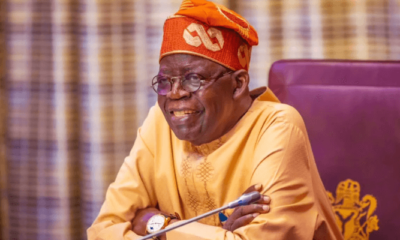Democracy & Governance
Impact Of Education On The Sustenance Of Democracy And Politics -By Bright Ogundare

Six decades after the independence wave blew across Africa; most of the African countries are still struggling with establishing competent and independent democratic institutions and getting basic amenities to the populace.
This was the consideration necessitating a brainstorming session of Vic’s political hub, a think tank of young African intellectuals on the way forward to this conundrum and to discuss the viability of education as the right tool for achieving African prosperity.
The movement for independence from the shackles of colonialism cannot itself be disconnected from the sound education of its leaders. As the colonial governments invested in education in a view of training a population of natives who will be able to carry out duties in the colony, this education also came with a sense of political consciousness and a demand for the dignities of human rights and self-determination. Hence, independence leaders like Kwame Nkruma, Obafemi Awolowo, Nnamdi Azikwe and Julius Nyerere were thoroughly educated men, a process that gave them enough knowledge to channel their struggle to victory. Many of them seeing how much education helped their struggles aggressively invested in education as a tool to develop their young nations.
6 decades after, the lofty goals are far from achieved, the education sector remains in comatose due to the ever reducing qualities of education. The education curriculum continues to be deficient and inadequate to provide students with the necessary nation building skills and knowledge. The system continues to emphasize on the abstracts while courses and topics which could have equipped the young minds with the necessary nation-building skills have been overlooked. This trend however is a deliberate and calculated happening. As corruption crept into the state fabric, the political elites were continually put on their toes by voices from the academia as students and lecturers resisted the irresponsibilities and rascalities of the ruling elites. The ruling elites to prevent the academia from serving the role of a check, they, therefore, embarked on policies that crippled the academia such as underfunding of the sector leading to massive infrastructure and human capacity decay.
These in the long run helped in reducing the quality of graduates and their ability to participate in the political process. No nation where its intellectuals abscond from the political process can have a serious shot at development.
It is therefore pertinent for this trend to be reversed. There must therefore be a reinvigoration of education. History has taught us that development in advanced societies has corresponded with development in education. The developments in science which drove the industrial revolution, the advancement in the building of infrastructures, the management of the modern economy could not have been possible without investment in education.
There must be an overhaul of the education curriculum in view of a new one that is oriented towards the application of scientific knowledge, adequate political education and nation-building. We need a total education reform that would blend our indigenous knowledge pool with western education just like the Chinese and Indians have shown us. There is no shortcut or alternative to education.
In the words of the late sage, Chief Obafemi Awolowo, “if you think education is expensive, try ignorance”.









